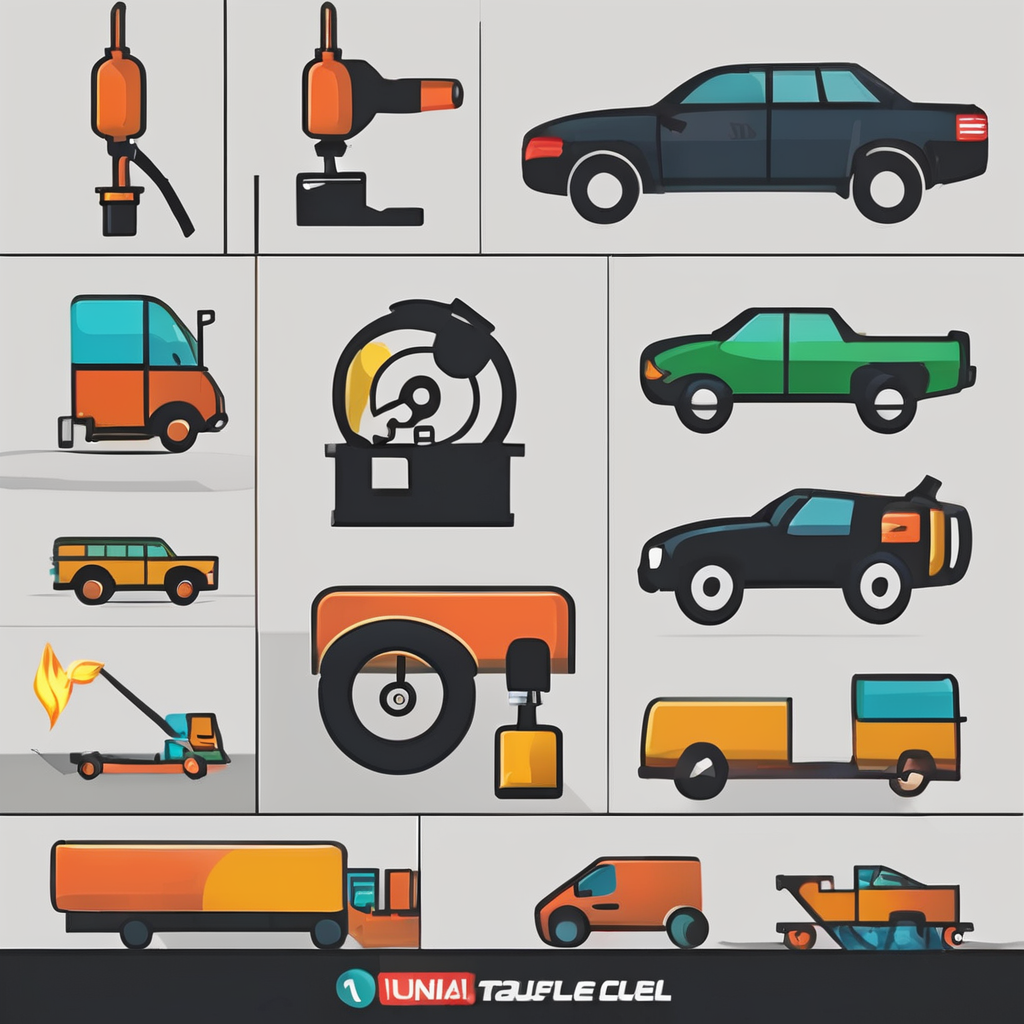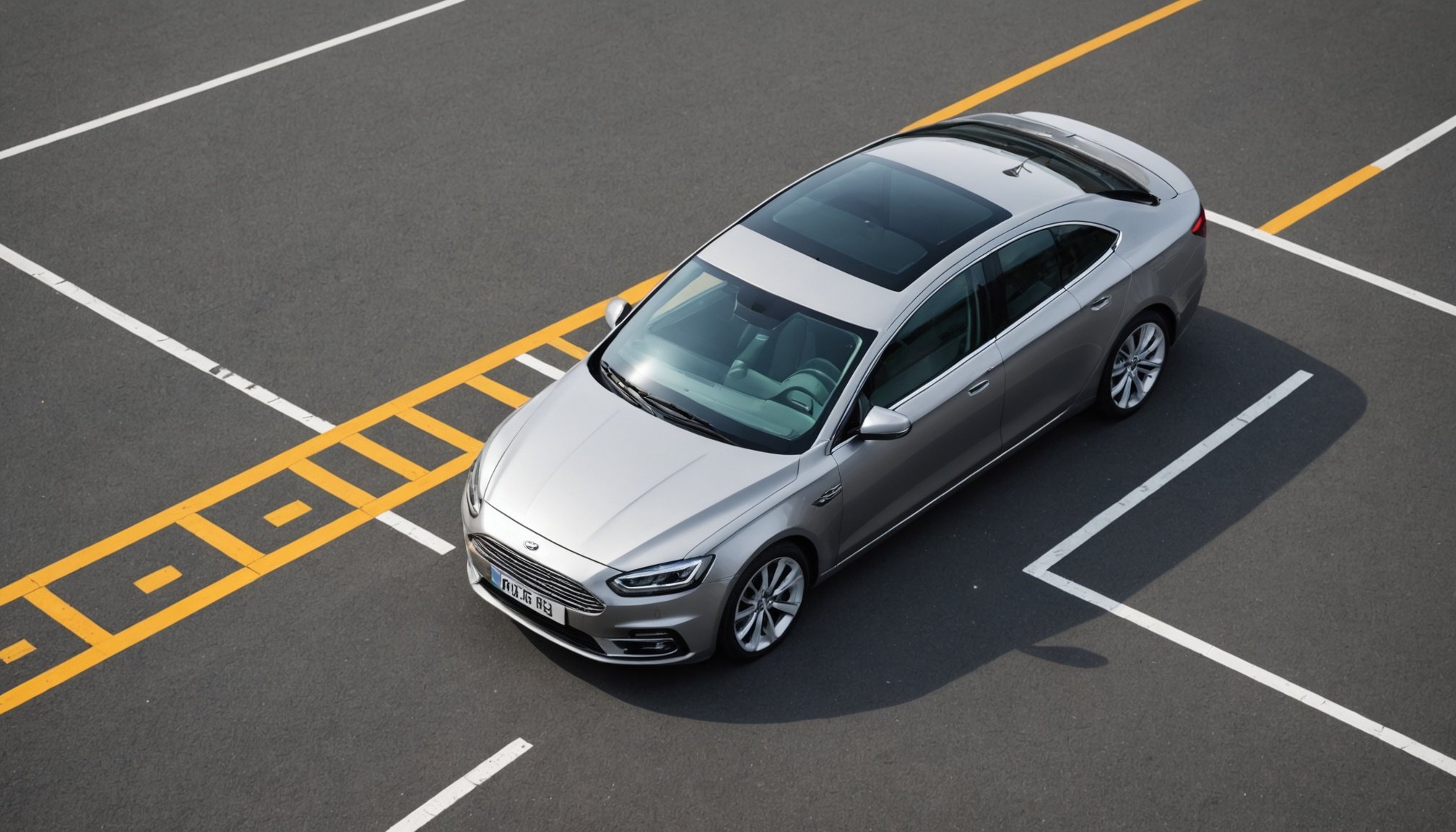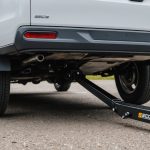Unlocking VAT Secrets for UK Business Vehicle Acquisitions: Your Ultimate Guide to Success
When it comes to acquiring vehicles for your business in the UK, understanding the intricacies of Value Added Tax (VAT) can be a game-changer. Here’s a comprehensive guide to help you navigate the complex world of VAT and make the most out of your business vehicle purchases.
Understanding VAT and Your Business
Before diving into the specifics of VAT on business vehicles, it’s essential to grasp the basics of VAT and how it applies to your business.
Also to see : Your comprehensive handbook to choosing the best eco-friendly car wash products for uk weather conditions
What is VAT and How Does it Work?
VAT is a consumption tax that is levied on the value added to goods and services. For businesses, VAT is a critical aspect of financial planning. You must register your business for VAT if your taxable turnover exceeds the VAT threshold of £90,000 over a rolling 12-month period[4].
Registering for VAT
To register for VAT, you need to have your company registration number, National Insurance number, business bank account details, and Unique Taxpayer Reference (UTR) ready. You can register through the GOV.UK website using a Government Gateway user ID and password[4].
Have you seen this : Maximize your vehicle”s towing capability: the ultimate uk guide to determining the perfect towing capacity
VAT on Business Vehicles: The Basics
When purchasing or leasing a vehicle through your limited company, VAT can play a significant role in your financial planning.
Can You Reclaim VAT on a Car?
Generally, you cannot reclaim VAT on the purchase of a car unless it meets specific criteria. For instance, if the car is used exclusively for business purposes, such as for taxis, driving instruction, or self-drive hire, you can reclaim the full VAT. However, if the car is used for both business and personal purposes, the VAT reclaim is restricted[2].
Types of Vehicles and VAT Reclaims
- Cars Used Exclusively for Business: If a car is used strictly for business, you can reclaim 100% of the VAT. This includes vehicles like vans, which are treated differently from cars[1][2].
- Pool Cars: If a car is normally kept at the principal place of business, not allocated to an individual, and not kept at an employee’s home, you can recover the VAT incurred on its purchase[2].
Tax Treatment and VAT Reclaims: Buying vs. Leasing
The way you acquire a vehicle—whether by buying or leasing—significantly affects your VAT and tax implications.
Buying a Car
When buying a car, you cannot deduct the purchase cost directly from your taxable profits. Instead, your company can claim capital allowances over time. The amount you can claim depends on the car’s CO2 emissions. Here’s a breakdown:
| CO2 Emissions | Capital Allowances |
|---|---|
| Up to 50g/km | 100% in the first year |
| 51-110g/km | 18% per annum (writing down allowance) |
| Above 110g/km | 6% per annum (writing down allowance) |
You may also reclaim some or all of the VAT if the car is used exclusively for business[1].
Leasing a Car
Lease payments are considered business expenses, so your company can deduct them from its taxable profits. However, only 50% of the VAT on lease payments can be reclaimed if the car is also used for personal trips. Here’s an example:
- Lease Payments: If your monthly lease payment is £500, you can deduct the full £500 from your taxable profits, but you can only reclaim 50% of the VAT on this payment if there is any personal use[1].
Capital Allowances and Write-offs
Capital allowances are a crucial aspect of tax planning when acquiring a business vehicle.
How Capital Allowances Work
Capital allowances allow your company to get relief on the cost of the car, reducing the company’s taxable profit. Here are some key points:
- Interest on Loans: If you finance the car through a loan or hire purchase, the interest on the loan is an allowable limited company expense[1].
- CO2 Emissions: The available capital allowance for cars depends on the CO2 emission levels. For example, cars with emissions up to 50g/km can qualify for 100% first-year allowance, while those with higher emissions have lower allowances[1].
Choosing the Right Vehicle for Your Business
Selecting the right vehicle can significantly impact your tax benefits and overall financial health.
Consider the Emissions
Low-emission vehicles often qualify for higher capital allowances and lower Benefit in Kind (BIK) charges, making them a tax-efficient choice. Here’s why:
- Tax Benefits: Vehicles with lower CO2 emissions can provide higher capital allowances and lower BIK charges. For instance, electric vehicles (EVs) and plug-in hybrid electric vehicles (PHEVs) often come with attractive tax incentives[1][3].
- Environmental Impact: Opting for environmentally friendly vehicles not only helps your business financially but also contributes to a more sustainable future.
Usage and Purpose
Assess the primary use of the vehicle to maximize tax benefits:
- Business Use: If the vehicle is predominantly used for business purposes, ensure it aligns with your business needs. For example, vans are treated differently from cars and can offer more favorable tax treatment[1].
Practical Steps to Buying or Leasing a Car Through Your Business
Here’s a step-by-step guide to help you through the process:
Determine Your Needs
Start by analyzing your requirements:
- Usage Frequency: How often will you use the car for business?
- Type of Vehicle: What type of vehicle do you need? Consider size, fuel type, and budget.
- Leasing vs. Buying: Decide whether leasing or buying is better for your business.
Set a Budget
Decide how much your company can spend on the car, including all costs such as purchase price or monthly lease payments, insurance, maintenance, and fuel.
Research Vehicles
Look for cars that fit your needs and budget. Compare different models, fuel types, and prices. Pay attention to CO2 emissions, as this will affect tax implications and benefits.
Get Quotes
Gather quotes from different dealerships and leasing companies. Compare prices, terms, and any additional costs.
Check Financing Options
If you decide to buy, explore financing options. Ensure the terms are manageable for your business.
Consult with Your Accountant
Before making any decisions, speak with your limited company accountant. They can provide valuable insights into the tax implications of buying or leasing a car through your limited company.
Case Study: The Benefits of Electric Vehicles
Let’s consider an example of how electric vehicles can be beneficial for your business:
Tax Incentives
In many countries, including the UK, electric vehicles come with significant tax incentives. For instance:
- VAT Deduction: In Austria, you can deduct the full VAT for electric vehicles up to €40,000[3].
- Capital Allowances: Electric vehicles often qualify for 100% first-year capital allowances, reducing your company’s taxable profit[1].
Example
If you purchase an electric vehicle for £30,000, you could reclaim the full VAT if it’s used exclusively for business. Additionally, you could claim 100% of the purchase price as a capital allowance in the first year, significantly reducing your company’s taxable profit.
Compliance and Record-Keeping
Ensuring compliance with VAT regulations is crucial to avoid any penalties.
Records You Must Keep
You must keep detailed records of your vehicle purchases, including:
- Invoices: Keep all invoices related to the purchase, including any VAT charged.
- Usage Logs: Maintain logs of how the vehicle is used to support your VAT claims.
- Maintenance Records: Keep records of all maintenance and repairs to claim as business expenses[2]. and Final Tips
Understanding VAT on business vehicles is a complex but rewarding task. Here are some final tips to keep in mind:
Seek Professional Advice
Always consult with your accountant before making any decisions regarding business vehicle acquisitions. They can provide tailored advice based on your company’s specific situation.
Stay Updated
Tax laws and regulations can change, so it’s important to stay updated. For example, changes in the autumn budget can affect your tax planning strategies.
Plan Ahead
Tax planning is not just about compliance; it’s about optimizing your financial health. Plan ahead and consider how your vehicle choices will impact your company’s taxes in the long run.
By following this guide, you can unlock the secrets of VAT and make informed decisions that benefit your business financially and operationally.
Table: Comparative Analysis of VAT Reclaims on Different Vehicle Types
| Vehicle Type | VAT Reclaim Eligibility | Capital Allowances | BIK Charges |
|---|---|---|---|
| Cars Used Exclusively for Business | 100% VAT reclaim | 100% first-year allowance for low-emission vehicles | Lower BIK charges |
| Pool Cars | 100% VAT reclaim | 18% writing down allowance | No BIK charges if not allocated to an individual |
| Leased Cars | 50% VAT reclaim on lease payments | 18% writing down allowance | BIK charges apply based on CO2 emissions |
| Electric Vehicles | 100% VAT reclaim if used exclusively for business | 100% first-year allowance | 0% BIK charges for the first £50,000 |
Detailed Bullet Point List: Key Considerations for Buying or Leasing a Car Through Your Business
- Determine the primary use of the vehicle: Ensure it aligns with your business needs to maximize tax benefits.
- Choose the right financing option: Consider loans, hire purchase, or leasing, and ensure the terms are manageable for your business.
- Consider CO2 emissions: Low-emission vehicles offer higher capital allowances and lower BIK charges.
- Keep detailed records: Maintain logs of vehicle usage, maintenance, and invoices to support VAT claims.
- Consult with your accountant: Get professional advice to understand the specific tax implications for your company.
- Stay updated with tax laws: Changes in tax regulations can affect your tax planning strategies.
- Plan for VAT compliance: Ensure you meet all VAT requirements to avoid penalties.
Quotes from Experts
- “Understanding VAT on business vehicles is crucial for optimizing your company’s financial health. It’s not just about compliance; it’s about making informed decisions that benefit your business in the long run.” – [Your Accountant’s Name]
- “Electric vehicles are becoming increasingly attractive for businesses due to their tax benefits and environmental advantages. It’s a win-win situation.” – [Industry Expert’s Name]
By following this comprehensive guide, you can navigate the complex world of VAT on business vehicles with confidence, ensuring your company makes the most out of its vehicle acquisitions.











